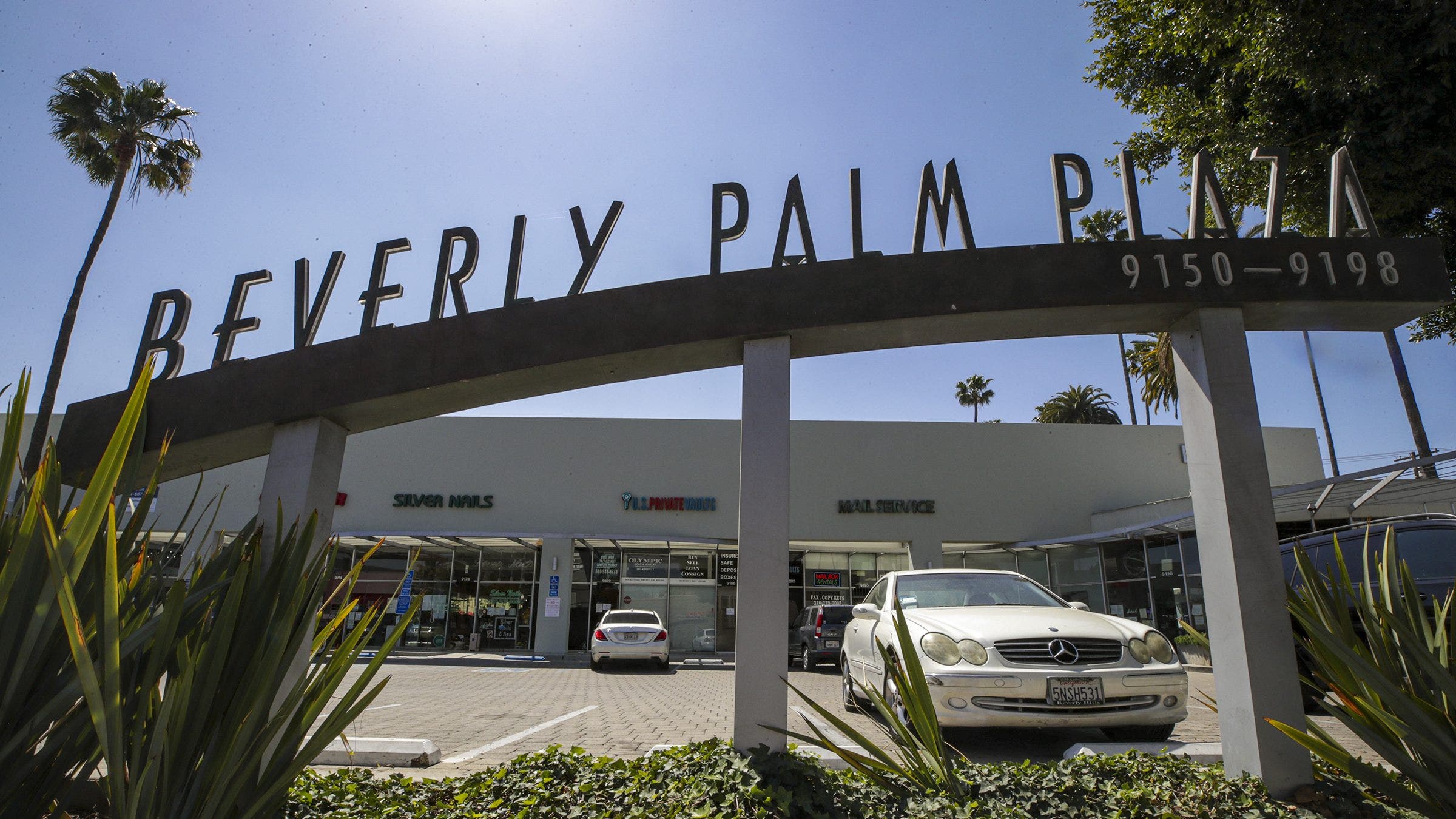Judge sides with FBI in $86M Beverly Hills private vault seizure prompting lawyers’ 4th Amendment outcry
A federal judge slapped down a class-action lawsuit that accused the FBI and Justice Department of misleading another magistrate for a warrant to search a private vault facility and ultimately seize roughly $85 million in assets from private citizens.
But attorneys for the plaintiffs and those in similar circumstances are warning that the seizures were still improper.
“The FBI lied about its intentions in claiming to only be interested in the property of the business, and not the [deposit] box holders,” Robert Frommer, an attorney for the plaintiffs, said in a statement before the judge’s ruling. “Ultimately, the lure of civil forfeiture turned these federal cops into robbers.”
Judge R. Gary Klausner disagreed — and the company itself admitted to criminal wrongdoing in a separate case.
The safe-deposit box company, U.S. Private Vaults (USPV), pleaded guilty in June to conspiracy to launder money, a DOJ spokesperson noted Monday.
FBI SEEKS DENVER EMPTY PROMISE BANDIT IN STRING OF COLORADO BANK ROBBERIES
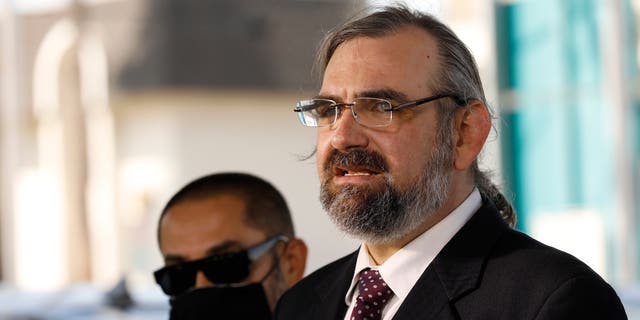
Attorney Robert Frommer speaks at a press conference outside U.S. Private Vaults in Beverly Hills on May 27, 2021.
(Al Seib / Los Angeles Times via Getty Images)
“The government obtained the search and seizure warrants based on evidence that USPV operated as a large-scale money laundering operation,” said Thom Mrozek, director of media relations for the U.S. Attorney’s Office of the Central District of California. “USPV pleaded guilty, admitting … that it ‘recruited as its customers drug traffickers and other criminals.’”
But while the government has “a number of ongoing investigations” in connection with USPV, the U.S. Attorney’s Office said it as not filed any other criminal charges.
Rob Johnson, another attorney for the class-action plaintiffs, vowed to appeal.
“If today’s shocking decision stands, it will set a dangerous precedent that will allow the FBI and other law enforcement agencies to bypass the Fourth Amendment,” he said in a statement after Klausner’s ruling. “The decision will give a blueprint for the government to pry open safe deposit boxes, storage lockers, and other private spaces — and to take the contents with civil forfeiture.”
COSTUMED OHIO SEX OFFENDER PLEADS GUILTY TO PLANTING BOMB AT ROMANTIC RIVAL’S MARYLAND HOME
Of the tens of millions seized, more than $50 million has been returned to “hundreds” of USPV customers, Mrozek said, but many millions remain unclaimed.
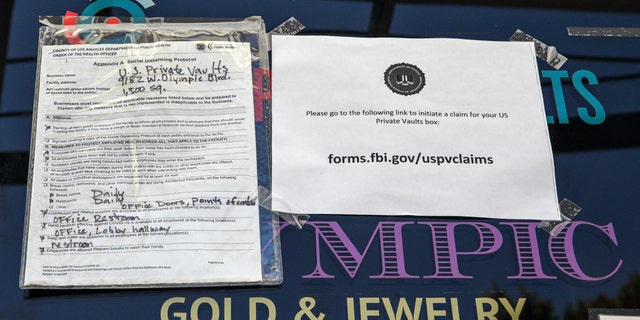
A lawsuit alleges that jewelry, currency, coins and bullion were illegally seized during the FBI’s raid of U.S. Private Vaults on April 2, 2021, in Beverly Hills, California.
(Irfan Khan / Los Angeles Times via Getty Images)
According to the FBI, all remaining private parties who want their possessions back can apply to have them returned.
USPV had hundreds of customers in California, according to Brian Silber, an asset forfeiture attorney who represented a different group of box holders – many of them law-abiding citizens who used the anonymous safe service out of concerns that their personal identifying information could be stolen or hacked elsewhere.
For them to get their property back through the FBI, he said, they would have to hand over that same sensitive information to the government.
“The claim form demands that you provide your name, your address, your phone number, Social Security number, and you have to sign that under oath,” he said. “So, they put property owners in a position where they either had to give up their property and preserve their privacy or give up their privacy and preserve their property.”

A lawsuit alleges that jewelry, currency, coins and bullion were illegally seized during the FBI’s raid of U.S. Private Vaults on April 2, 2021, in Beverly Hills, California.
(Irfan Khan / Los Angeles Times via Getty Images)
His strategy, which involved filing a motion to return property in the criminal case and not a separate civil lawsuit, led to his clients’ recovery of their belongings last year, he said, describing the seizure as an overreach in the first place, and he said the government overestimated the extent of the criminal activity going on at USPV.
“Usually, when it comes to civil asset forfeiture, criminals walk away from it because they don’t want to be investigated – who’s going to cry over that?” he said. “But these innocent people were storing their life savings in this place.”
USPV appealed to both law-abiding citizens seeking privacy and a criminal element for the same reasons, he said – it was a high-security storage facility, not a bank, so it was subjected to less regulation and had a greater promise of ensuring privacy. The FBI’s search warrants were “totally legit,” Silber said, but he does not believe they justified the wholesale seizure of assets from all of the firm’s customers.
“There were a few bad apples working at the company,” he said. “The owner, by his own admission.”
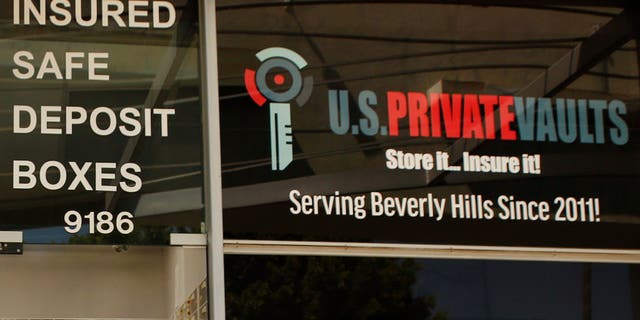
U.S. Private Vaults in Beverly Hills, California, on May 27, 2021.
(Al Seib / Los Angeles Times via Getty Images)
But in the summer of 2020, there was also a population of wealthy citizens, who were growing increasingly concerned by looting, anti-police protests, the coronavirus pandemic and a faltering economy, who wanted to secure cash and valuables, he said.
“They [the government] just assumed that all the money stored there was criminally derived,” he said. “This is a classic example of what goes wrong with civil asset forfeiture – they seized the money and asked the questions later.”
USPV used high-tech security measures, including biometric scans to access its vaults, but did not require personal identifying information, such as Social Security numbers, which some customers feared could be stolen, according to court documents. It also had 24-hour security from ADT and heat and motion sensors throughout its facility.
DOJ SUED FOR REFUSING TO EXPLAIN WHY IT IGNORED PROTESTS AT SUPREME COURT JUSTICES’ HOMES
However, due to the anonymity and enhanced security, the firm also attracted “unsavory characters to store criminal proceeds” – including from prostitution, gambling and drug rings as well as ransom payments, according to court documents. The FBI, DWA and U.S. Postal Inspection Service all had different investigations going into USPV customers between 2015 and 2019, according to court documents.
On the other hand, law-abiding citizens in the class-action lawsuit had a variety of legitimate uses for the company’s safe-deposit boxes.
Paul and Jennifer Snitko, the court noted, live in a wildfire-prone area and turned to USPV because their bank had a waiting list for safe-deposit boxes.
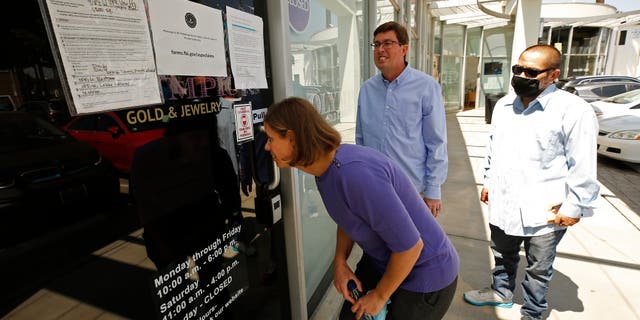
Plaintiffs Jennifer Snitko, her husband, Paul Snitko, and Joseph Ruiz, left to right, are shown outside U.S. Private Vaults on May 27, 2021, in Beverly Hills, California.
(Al Seib / Los Angeles Times via Getty Images)
Another plaintiff, Joseph Ruiz, stored $57,000 in cash in his box “because he was concerned that the COVID pandemic would make it impossible for [him] to withdraw [his] funds from a bank.”
“Although the government has indicted USPV, the government has not accused USPV’s customers—like the Snitkos, Ruiz, and [Tyler] Gothier — of violating any law,” the class-action complaint filed last year reads. “And while a warrant authorized the government to seize USPV’s property, the warrant did not authorize the government to conduct a criminal search or seizure of USPV’s customers’ property.”
In his judgment last month, Klausner found that while the initial warrant did not give the government authority to perform a criminal search and seizure of the customer’s deposit boxes, it did allow for law enforcement to inspect and document their contents “in an effort to identify their owners in order to notify them so they can claim their property.”
CLICK HERE TO GET THE FOX NEWS APP
“Plaintiff’s claim that the Government exceeded the bounds of the warrant hinges on whether the Government’s actions were a valid inventory,” the judge wrote. “Having found a valid inventory, the Court necessarily finds that the Government did not exceed the bounds of the warrant. Plaintiffs have failed to prove this prong of their Fourth Amendment Argument.”
Mrozek, the DOJ spokesperson, said that “the court’s ruling expressly rejected every claim of improper conduct” on behalf of the FBI or prosecutors.

